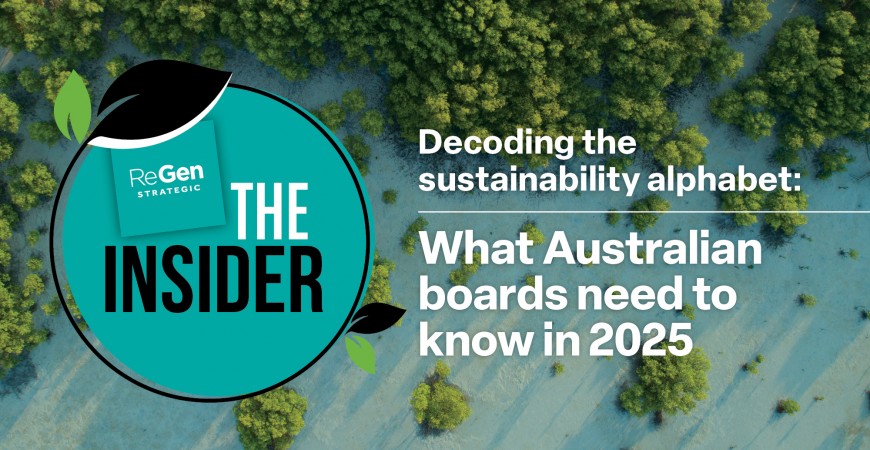As Australian companies navigate an increasingly complex regulatory and social environment, understanding sustainability considerations has become critical at the board level. In 2025, sustainability is no longer a peripheral topic or a marketing exercise; it is central to effective governance, risk management, and strategic decision making.
Why Sustainability Literacy Matters for Boards
Boards are legally and ethically accountable for overseeing sustainable business practices. This responsibility has been sharpened by new climate-related regulations introduced in Australia, which require directors to factor climate risks into their fiduciary duties. Failure to do so can expose companies and their leaders to legal, financial, and reputational risks.
Sustainability literacy equips board members to:
- Evaluate climate and broader sustainability risks with the same rigour as financial risks
- Integrate sustainability into strategic planning and capital allocation
- Oversee transparent and robust sustainability reporting aligned with emerging frameworks
- Engage effectively with investors, regulators, and stakeholders increasingly focused on sustainability performance
Key Governance Trends in Sustainability for 2025
The evolving sustainability landscape demands boards stay ahead of several governance trends:
- Mandatory Climate Risk Disclosure under AASB AFRS S2: From 1 January 2025, Australian entities subject to the Australian Accounting Standards Board’s (AASB) new Sustainability-related Financial Disclosures Standard (AFRS S2) are required to report detailed climate-related financial information. This includes governance, strategy, risk management, and metrics and targets related to climate risks and opportunities. Boards must ensure their organisations have credible data collection, effective internal controls, and processes in place to meet these stringent disclosure requirements.
- Enhanced Modern Slavery Reporting: Strengthened requirements under Australia’s Modern Slavery Act mean that from 2025, larger organisations must provide more detailed, transparent Modern Slavery Statements demonstrating how they identify, assess, and address modern slavery risks within their operations and supply chains. Boards need to ensure that modern slavery risk management is integrated into their broader sustainability governance framework.
- Board Composition and Expertise: There is growing emphasis on appointing directors with sustainability expertise or providing sustainability specific training to existing members. Diverse boards with relevant skills enhance oversight of complex sustainability challenges.
- Integration of Social and Governance Factors: Beyond environmental concerns, social issues like workforce wellbeing, equity, and Indigenous engagement should be high board priorities.
How ReGen Strategic Supports Boards in 2025
ReGen specialises in bridging the gap between sustainability imperatives and governance excellence. Our tailored sustainability training and executive briefings help boards decode the evolving sustainability alphabet and embed best-practice governance. We assist directors in understanding their fiduciary duties under new climate laws and guide the integration of sustainability into risk management and reporting processes, including modern slavery risk management.
We support organisations in enhancing board effectiveness by aligning sustainability with corporate strategy, improving stakeholder engagement, and meeting the rising expectations of regulators and investors.
As sustainability continues to reshape the business landscape, boards that prioritise sustainability literacy and governance today will be best positioned to lead resilient, responsible organisations tomorrow. ReGen Strategic is here to partner with your board on that journey.
 ReGen Strategic
ReGen Strategic